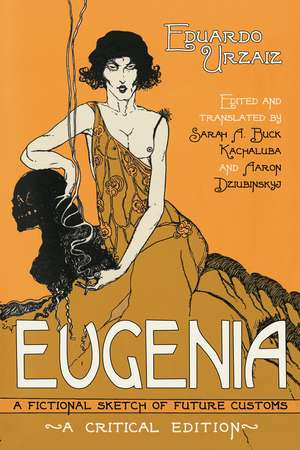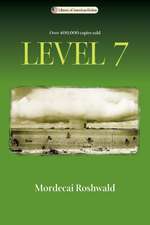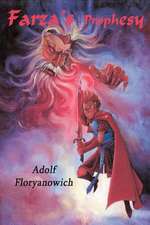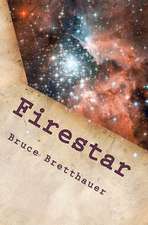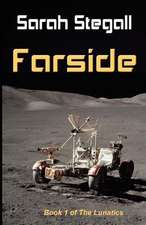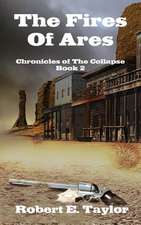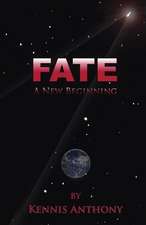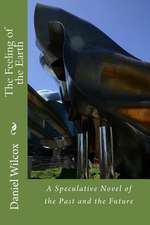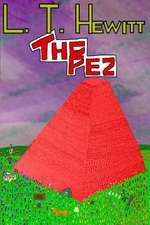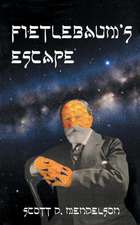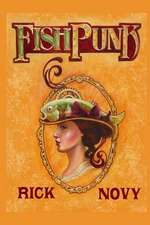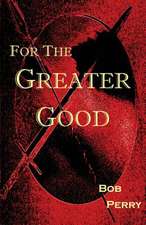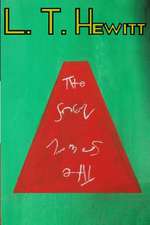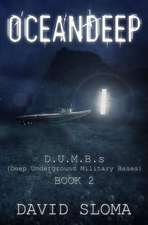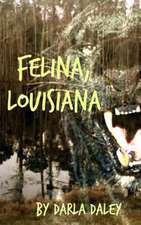Eugenia: A Fictional Sketch of Future Customs
Autor Eduardo Urzaiz Editat de Sarah A. Buck Kachaluba, Aaron Dziubinskyj, Sarah Buck Kachalubaen Limba Engleză Paperback – feb 2016
A little-known gem of utopian/dystopian fiction published in 1919 tells
the story of a eugenically engineered society of the future.
It is the year 2218. In "Villautopia," the capital of a Central American nation, the
state selects young, biologically desirable citizens to act as breeders. Embryos
are implanted in males to increase a flagging population rate, and the offspring
are raised in state facilities until old enough to choose their own, nonnuclear
families. Sterilization of children with mental or physical abnormalities further
ensures the purity of the gene pool.
Written two years before Yevgeny Zamyatin's We and twelve years before
Aldous Huxley's Brave New World, Eugenia recounts the story of Ernesto, who at age twenty-three is selected as a breeder. Celiana, his thirty-eight-year-old lover
and an accomplished scholar, is deemed unfit for reproduction. To cope with
her feelings of guilt and hopelessness, she increasingly turns to marijuana, and
her scholarly productivity declines. Meanwhile Ernesto falls in love with a fellow
breeder, a young woman named Eugenia—but the life they ultimately choose is
not quite what the state had envisioned.
Taking up important challenges of modern society—population growth,
reproductive behavior and technologies, experimentation with gender roles,
and changes in family dynamics—Eugenia is published here in English for the
first time. Sarah A. Buck Kachaluba and Aaron Dziubinskyj provide a critical
apparatus helping readers to understand the novel's literary genesis and genealogy
as well as its historical context. Arising from its twentieth-century origins, yet
remarkably contemporary, Eugenia is a treasure of speculative fiction.
the story of a eugenically engineered society of the future.
It is the year 2218. In "Villautopia," the capital of a Central American nation, the
state selects young, biologically desirable citizens to act as breeders. Embryos
are implanted in males to increase a flagging population rate, and the offspring
are raised in state facilities until old enough to choose their own, nonnuclear
families. Sterilization of children with mental or physical abnormalities further
ensures the purity of the gene pool.
Written two years before Yevgeny Zamyatin's We and twelve years before
Aldous Huxley's Brave New World, Eugenia recounts the story of Ernesto, who at age twenty-three is selected as a breeder. Celiana, his thirty-eight-year-old lover
and an accomplished scholar, is deemed unfit for reproduction. To cope with
her feelings of guilt and hopelessness, she increasingly turns to marijuana, and
her scholarly productivity declines. Meanwhile Ernesto falls in love with a fellow
breeder, a young woman named Eugenia—but the life they ultimately choose is
not quite what the state had envisioned.
Taking up important challenges of modern society—population growth,
reproductive behavior and technologies, experimentation with gender roles,
and changes in family dynamics—Eugenia is published here in English for the
first time. Sarah A. Buck Kachaluba and Aaron Dziubinskyj provide a critical
apparatus helping readers to understand the novel's literary genesis and genealogy
as well as its historical context. Arising from its twentieth-century origins, yet
remarkably contemporary, Eugenia is a treasure of speculative fiction.
Preț: 155.96 lei
Nou
Puncte Express: 234
Preț estimativ în valută:
29.85€ • 30.83$ • 24.84£
29.85€ • 30.83$ • 24.84£
Carte disponibilă
Livrare economică 04-18 martie
Preluare comenzi: 021 569.72.76
Specificații
ISBN-13: 9780299306847
ISBN-10: 0299306844
Pagini: 284
Ilustrații: 10 b-w illus.
Dimensiuni: 152 x 229 x 25 mm
Greutate: 0.43 kg
Ediția:1, A Critical Edition
Editura: University of Wisconsin Press
Colecția University of Wisconsin Press
ISBN-10: 0299306844
Pagini: 284
Ilustrații: 10 b-w illus.
Dimensiuni: 152 x 229 x 25 mm
Greutate: 0.43 kg
Ediția:1, A Critical Edition
Editura: University of Wisconsin Press
Colecția University of Wisconsin Press
Recenzii
"A major contribution. Sarah A. Buck Kachaluba and Aaron Dziubinskyj have unearthed a powerful and crucial work in the literary history of Mexico, and they have created a precise, effective translation and a critical apparatus that encourages readers to engage with the story in novel and complex ways." —Cristina Rivera-Garza, author of No One Will See Me Cry
Notă biografică
Eduardo Urzaiz (1876–1955) was a Cuban-Mexican schoolteacher, gynecologist, obstetrician, artist, and student of psychiatry. Sarah A. Buck Kachaluba is a research librarian in the humanities at Florida State University and has a PhD in Latin American history. Aaron Dziubinskyj is an associate professor of modern languages at DePauw University.
Cuprins
Eduardo Urzaiz’s Eugenia: A Critical Introduction
Eugenia
Social and Biological Reproduction in Eugenia
Eugenia and Eugenics
Eugenia’s Literary Genesis and Genealogy
Eugenia
Social and Biological Reproduction in Eugenia
Eugenia and Eugenics
Eugenia’s Literary Genesis and Genealogy
Descriere
A little-known gem of utopian/dystopian fiction, Eugenia was published in Mexico in 1919 and tells the story of a eugenically engineered society of the future. This is the first English-language translation and includes a critical apparatus helping readers to understand the novel's literary and historical context.
